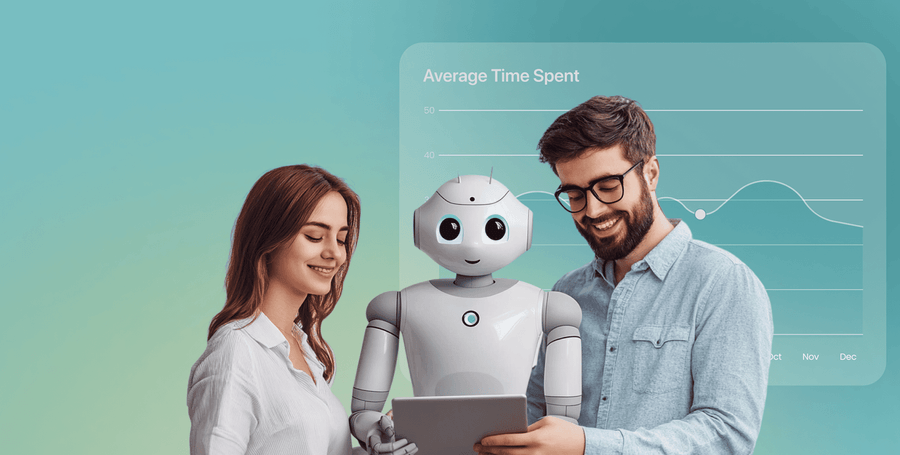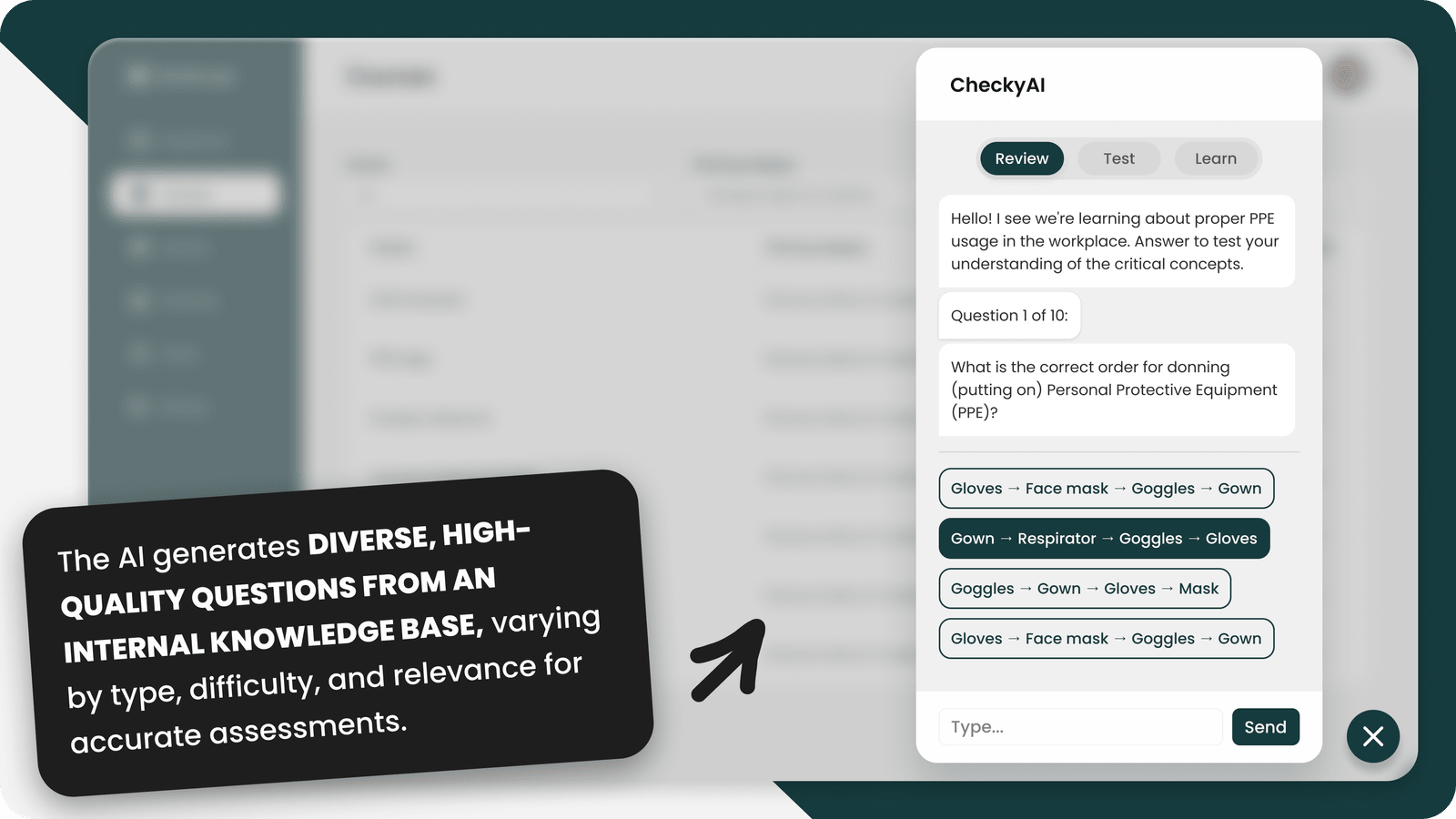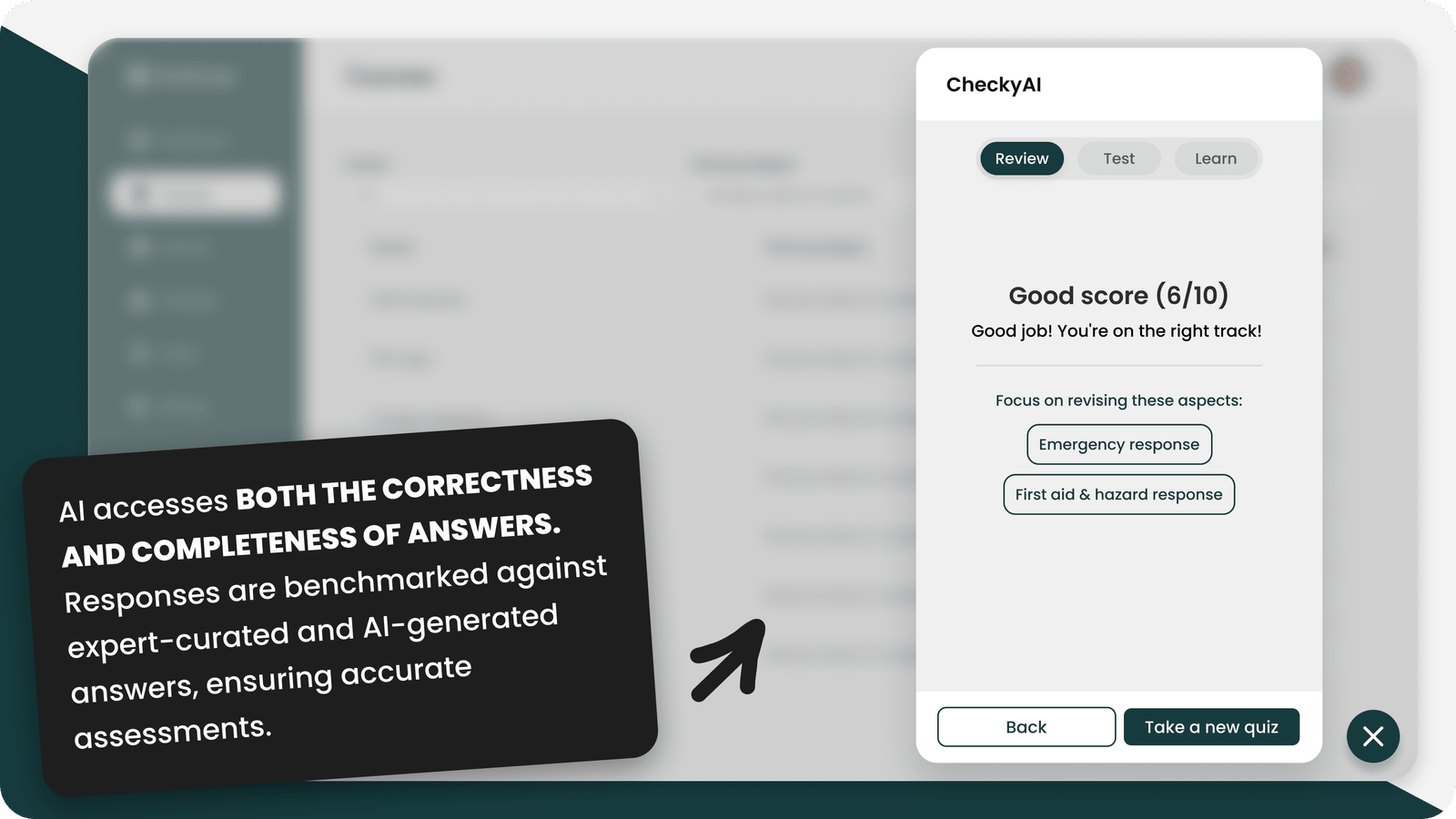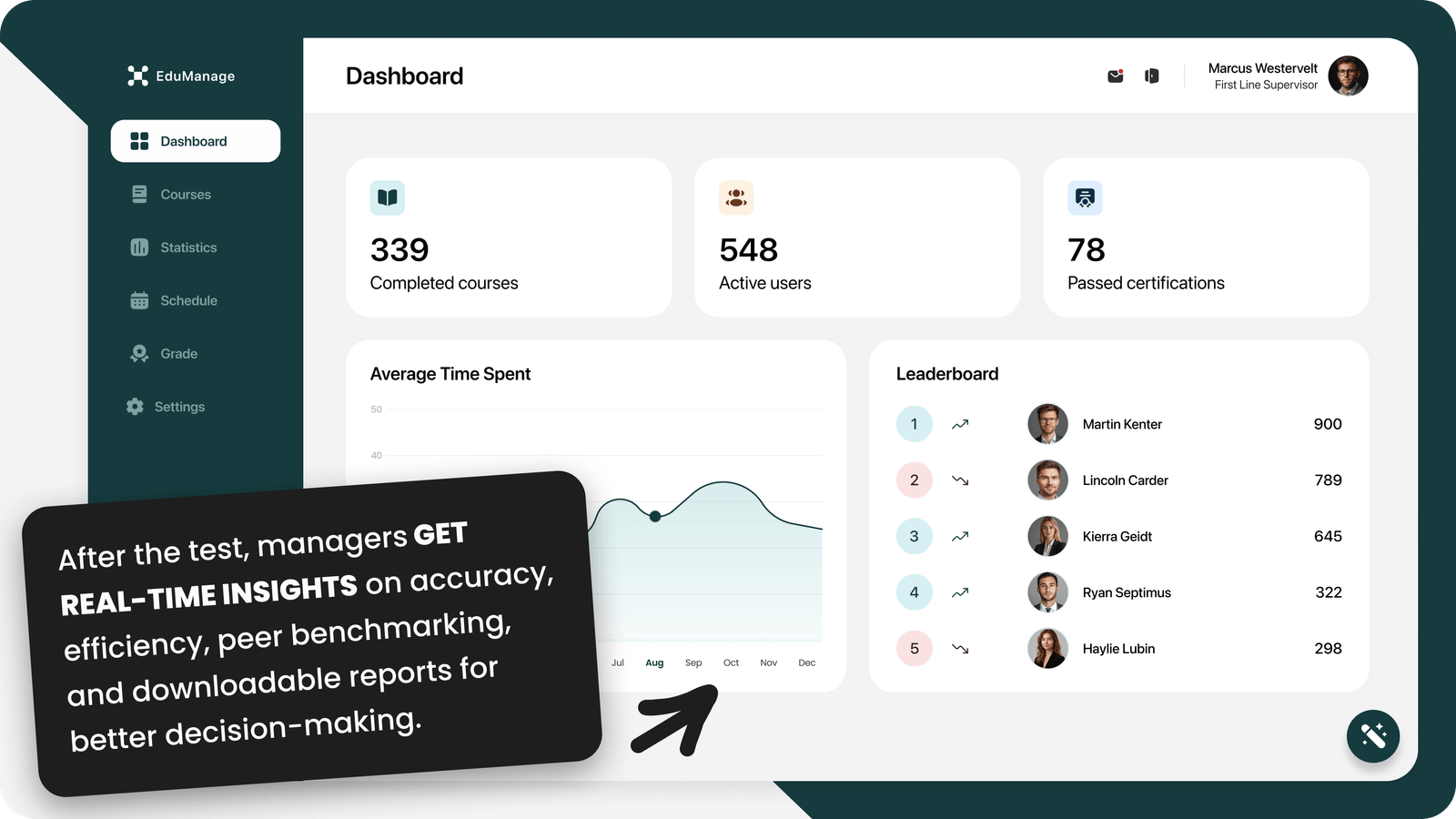
AI tool for talent development and upskilling
The customer is a US-based company that manufactures microelectronic products using manual, automatic, and semi-automatic equipment across multiple facilities worldwide.

Key achievements
| 67% | decrease in instructors’ workload |
| 2x | ROI on training investments |
| 25% | reduction in employee turnover |
Project scope
For the project, the Aristek team applied its AI and corporate education expertise through these steps:
Comprehensive data collection
The Aristek team gathered training materials from various departments, ensuring full corporate knowledge coverage for accurate AI-driven assessments.
Data cleaning & standardization
Inconsistencies were removed, duplicates eliminated, and formats standardized for seamless integration into AI-driven processing pipelines.
AWS-powered processing
AWS Glue handled ETL tasks, while AWS Lambda managed transformations, enabling a scalable, serverless approach for structured data.
Semantic search database
AWS OpenSearch stored segmented materials with metadata, allowing precise filtering by topic, complexity, and relevance for easy retrieval.
AI-driven question generation
The system uses OpenAI’s GPT-4o with structured prompts to create contextually relevant questions based on type, difficulty, and topic.
Dynamic test adaptation
AI adjusts test difficulty in real time, ensuring fair evaluations while preventing employees from relying on pre-prepared answers.
Concept-linked assessments
The RAG approach and OpenSearch enable tests to include related topics, evaluating employees’ ability to connect concepts effectively.



